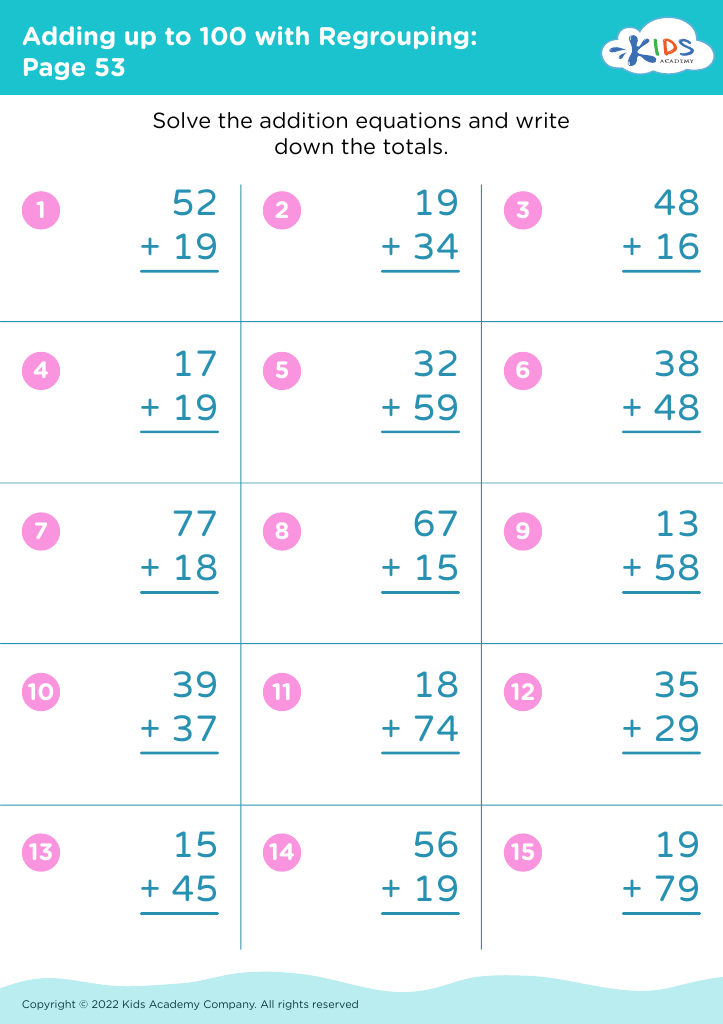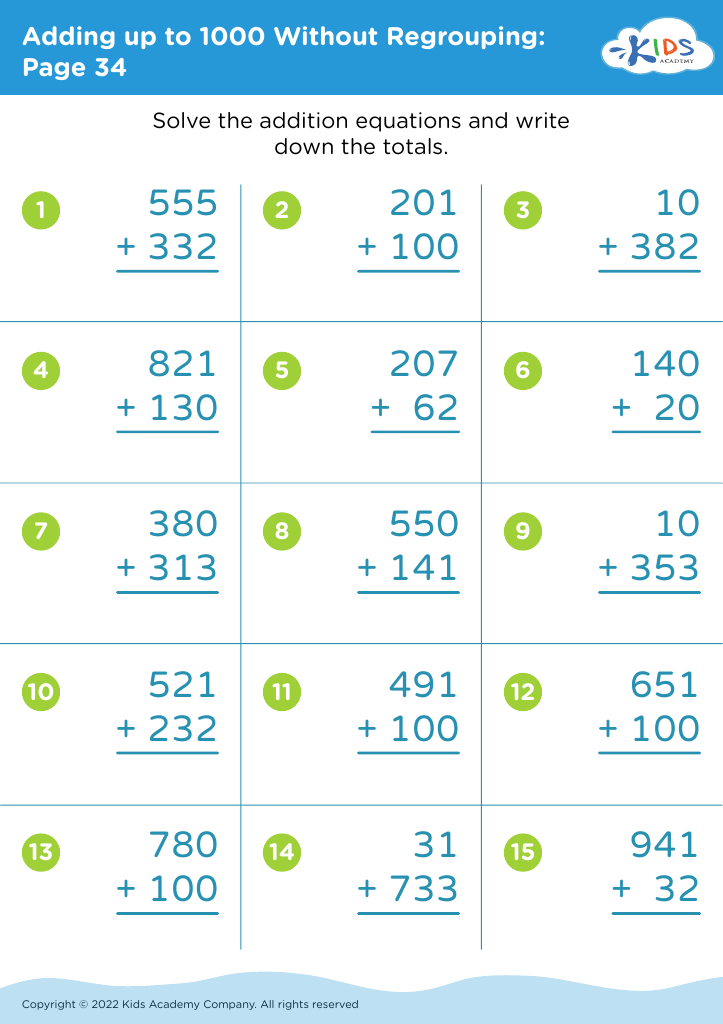Improve problem-solving Addition Worksheets for Ages 5-7
4 filtered results
-
From - To
Enhance your child's math skills with our "Improve Problem-Solving Addition Worksheets" for ages 5-7. Designed to foster critical thinking and reinforce addition concepts, these engaging worksheets challenge young learners to solve various problems in fun and interactive ways. Each activity promotes comprehension and encourages children to apply their addition skills to everyday situations. Perfect for both classroom and home use, our worksheets are tailored to bring joy to learning while building essential math foundations. Help your child develop a love for problem-solving and math through our curated collection, ensuring they gain confidence and proficiency along the way!
Parents and teachers should prioritize improving problem-solving skills in addition for children ages 5 to 7 because early math foundations play a crucial role in a child's overall cognitive development. Mastering addition helps students develop logical thinking, critical analysis, and adaptability—all essential skills for future learning.
Additionally, when children grasp basic addition and problem-solving techniques, they gain confidence in their mathematical abilities. This confidence fosters a positive disposition toward math, which is vital as concepts become more complex in later grades. Supportive environments that encourage questioning and reasoning promote a growth mindset, where children learn to view challenges as opportunities for growth rather than obstacles.
Moreover, problem-solving through addition aids in enhancing social skills. Group activities encourage collaboration and communication, as children discuss their approaches to different problems. This collaboration cultivates empathy and helps them engage in diverse perspectives.
Lastly, as math becomes integrated into various aspects of everyday life, having strong problem-solving skills ensures children can apply their knowledge in real-world situations, from basic budgeting to understanding time and sequencing. Thus, fostering these abilities not only equips children for academic success but prepares them for practical life challenges as well.










.jpg)










